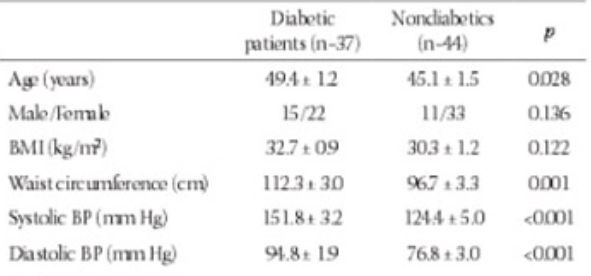Analysis of CYP2C9*2, CYP2C19*2, and CYP2D6*4 polymorphisms in patients with type 2 diabetes mellitus
DOI:
https://doi.org/10.17305/bjbms.2010.2662Keywords:
drug-metabolising enzymes, CYP2C9, CYP2C19, CYP2D6, diabetes, pharmacogeneticsAbstract
This is the first study performed in population from Bosnia & Herzegovina (BH), in which we analysed a significance of genetic variations in drug-metabolising enzyme, cytochrome P450 (CYP), in pathogenesis of Type 2 diabetes. We have determined allele frequencies for CYP2C9*2, CYP2C19*2, and CYP2D6*4 in diabetic patients and nondiabetic controls. Genomic DNA was extracted from blood samples collected from 37 diabetic and 44 nondiabetic subjects. A real-time polymerase chain reaction was used for the detection of specific CYP polymorphisms, with the application of the specific TaqMan’ SNP genotyping tests (AppliedBiosystems). Interestingly, results from this study have demonstrated that frequencies of CYP2C19*2 and CYP2D6*4 variants were in line, while frequency of CYP2C9*2 polymorphism seemed to be lower in this sample of BH population as compared to the Caucasians genotype data. Furthermore, no significant difference in allele frequencies for CYP2C9*2, CYP2C19*2, and CYP2D6*4 was demonstrated between diabetic and nondiabetic subjects. Thus, results form this study seem to indicate no relationship between CYP2C9, CYP2C19, and CYP2D6 genotype and diabetes susceptibility in Bosnian population. This in part may reflect a limited study population included in our study and would require larger cohorts to reveal potential relationships between analysed CYP genetic variants and diabetes risk. In addition, it would be pertinent to further explore possible effects of CYP genetic variations on therapeutic and adverse outcomes of oral antidiabetics, which might be the key in optimising therapy for individual patient with Type 2 diabetes.
Citations
Downloads

Published
Issue
Section
Categories
License
Copyright (c) 2017 Bosnian Journal of Basic Medical Sciences

This work is licensed under a Creative Commons Attribution 4.0 International License.
How to Cite
Accepted 2017-11-14
Published 2010-11-20









